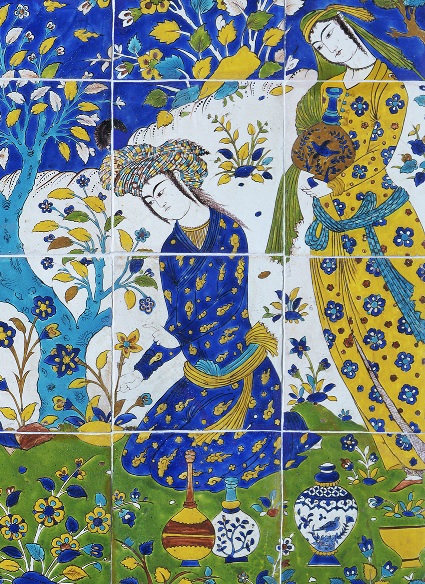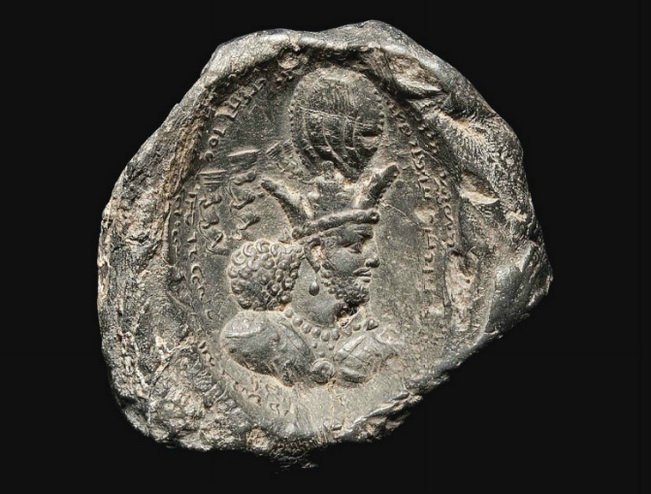
Iranian #Nowruz (Sasanian Middle Persian/Parsig: nōgrōz) is ancient, but an even more ancient name for the celebration is Nāvā sardā
I've looked at ~ 20 articles on Nowruz, but unfortunately can't find anything on its more ancient roots... Can anyone help? 🌼🌸
⤵️
I've looked at ~ 20 articles on Nowruz, but unfortunately can't find anything on its more ancient roots... Can anyone help? 🌼🌸
⤵️

I find it fascinating because by all accounts in Sasanian Middle Persian & modern Persian, year = sāl
Only in Parthian, old Persian & Avestan is it Sarad > sard, which points to the name likely being more ancient.
From excellent thread by @ArnoAlahverdian on Armenian Nawasard

Only in Parthian, old Persian & Avestan is it Sarad > sard, which points to the name likely being more ancient.
From excellent thread by @ArnoAlahverdian on Armenian Nawasard


here:
we learn the term goes back to Old Persian, (possibly Parthian)
⤵️
https://twitter.com/ArnoAlahverdian/status/1372802319423737858?s=20
we learn the term goes back to Old Persian, (possibly Parthian)
⤵️
Sogdians had نوسارد Nosard; Khwarazmians had نوسارجی Nosarji
From excellent thread by @Simcha_Gross we learn in the Talmud, the festival was called Nūsardi (נוסדרי) (reconstructed)
So many questions arise. Do the Central Asian terms go back to Avestan
From excellent thread by @Simcha_Gross we learn in the Talmud, the festival was called Nūsardi (נוסדרי) (reconstructed)
https://twitter.com/Simcha_Gross/status/1372946293681704967?s=20
So many questions arise. Do the Central Asian terms go back to Avestan
Old Persian or Parthian?
Can we really argue for a Mesopotamian origin (Babylonian or otherwise) of any part of the festival when its more ancient name was used across Asia?
Did Nowruz (possibly Avestan navaka raocah) exist alongside Navasarda?
⤵️
Can we really argue for a Mesopotamian origin (Babylonian or otherwise) of any part of the festival when its more ancient name was used across Asia?
Did Nowruz (possibly Avestan navaka raocah) exist alongside Navasarda?
⤵️
when Mary Boyce wrote (Iranica article) and others write things like "Nowruz" isn't mentioned in Avesta & Old Persian, do they mean they also checked for Navasarda & its variants?
We would NOT expect to find "Nowruz" in Old Persian or Avestan. We also know big parts
We would NOT expect to find "Nowruz" in Old Persian or Avestan. We also know big parts
of Avesta were likely lost. So this argument from absence is weaker than even the regular argument from absence.
In short, I think more research on Navasard/Navasarda is needed.
I wonder when @Simcha_Gross refers to Talmud, would that have been written 3-6 C CE?
In short, I think more research on Navasard/Navasarda is needed.
I wonder when @Simcha_Gross refers to Talmud, would that have been written 3-6 C CE?
If so, can we infer that "Nowruz" started being used in mid to late Sasanian era? And indeed "Navasard" in this form existed in Parsig?
Or is it from a Parthian background?
I may have missed it, but I couldn't find any papers on these issues. 🙏🌸
Or is it from a Parthian background?
I may have missed it, but I couldn't find any papers on these issues. 🙏🌸
I'm getting excited here... using logic:
If A) Navasard could not be from Sasanian era (unless same term was used in its historical way?), and in any event Sasanians did not hold Sogdiana for long enough & Central Asian terms are different in pronunciation
⤵️
If A) Navasard could not be from Sasanian era (unless same term was used in its historical way?), and in any event Sasanians did not hold Sogdiana for long enough & Central Asian terms are different in pronunciation
⤵️

and B) Parthians' rule likely did not extent, at all, to Sogdiana, & even during Achaemenid rule, Sogdiana was fairly independent & different in various ways, including language, clothing etc.
Can we conclude variations of term Navasard in Central Asia are from Avestan root?

Can we conclude variations of term Navasard in Central Asia are from Avestan root?


This can be the "evidence" we're looking for re how ancient this celebration is, and possibly its Avestan form, even if the term hasn't survived in what has come down to us in this very ancient language 🌸🌼💐🌺
Also see original thread on history of term #Nowruz itself. In this thread I'm focusing instead on likely earlier term Nausard/ Nava Sarda
https://twitter.com/On_Persia/status/1637256850499313664?s=20
• • •
Missing some Tweet in this thread? You can try to
force a refresh























